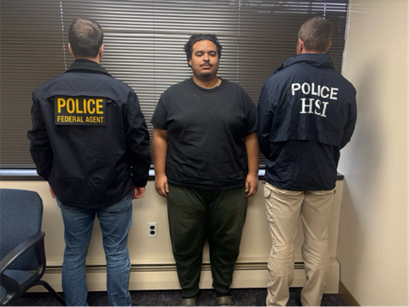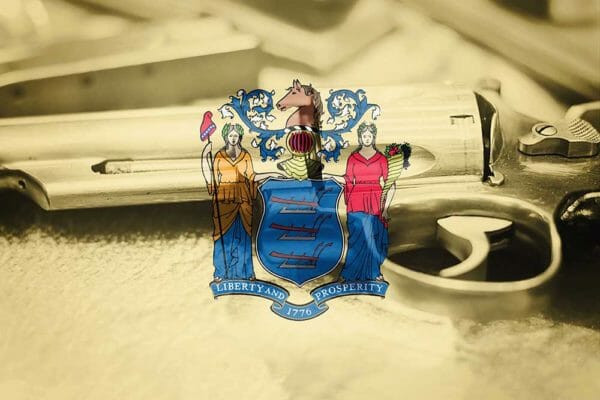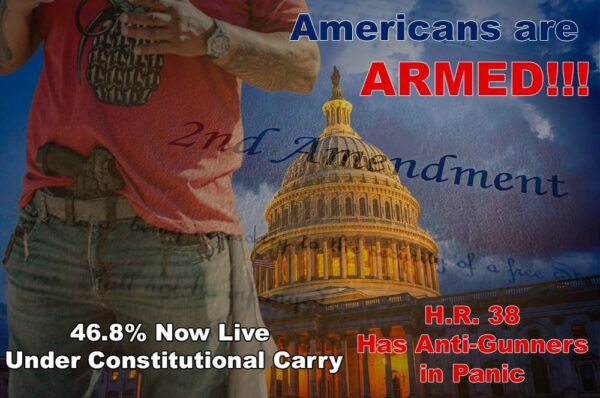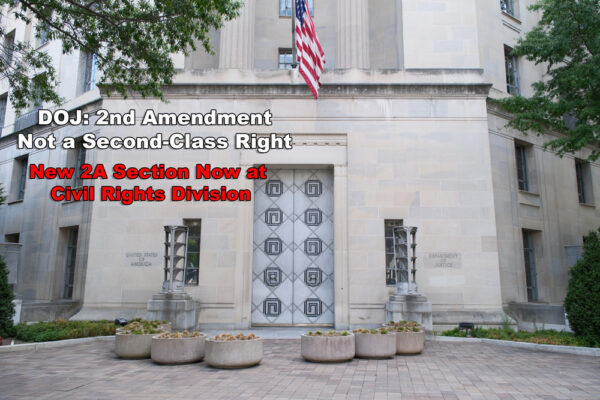
“DHS Arrests New Jersey Twins who Threatened to Shoot ICE Officers ‘On Sight’ and Hang Assistant Secretary Tricia McLaughlin,” a Tuesday Homeland Security press release announces. “Emilio Roman-Flores is being charged with unlawful possession of an assault weapon, possession of prohibited weapons, conspiracy terroristic threats, criminal coercion, threats, and cyber harassment. Ricardo Antonio Roman-Flores is charged with conspiracy terroristic threats.”
Fox News gives more insights on what the brothers were “thinking”:
“[The Second] Amendment is in place for moments like this. Shoot ICE on sight,” one of the brothers allegedly tweeted…
Putting stupid stuff like that out on social media is a “low-hanging fruit” move that’s a sure way to get the attention of authorities. And getting the attention of authorities was a great way for them to bring the full power and virtually unlimited resources of the state down on the twins’ heads. Not the brightest bulbs…
And while it could (and should) be argued that the weapons possession charges — on their own — are violations of the Second Amendment, their discovery in the context of threatening online statements makes them fair and legitimate game. If the brothers are found guilty of terror charges, they should remain separated from all weapons by segregating them behind bars, away from the rest of society.
It’s fair to wonder, though, where they got the idea that attacking federal officers enforcing duly enacted laws passed by democratically elected representatives can be construed as a legitimate application of the Second Amendment. It can’t be, but it’s probably fair to suspect they didn’t come up with the idea on their own, especially since it’s been spread around on mass media that the country is immersed in.
Case in point, former CNN talking head Don Lemon practically said as much on a widely reported recent podcast:
Former CNN host Don Lemon is urging “black and brown people” to buy guns and arm themselves as the Trump administration cracks down on illegal immigration… “Get a license to carry legally because when you have people knocking on your door and taking you away without due process as a citizen, isn’t that what the Second Amendment was written for?” He knows that’s not the issue.
Disingenuously and incompletely repeating points raised by 2A advocates is similar to the tactic employed by prominent Democrats when they calculatedly parody Oath Keepers. In all cases, they don’t actually define what the government is doing unlawfully, and they take pains to not cross the line between free speech and incitement, to incriminate themselves with what they’re advocating.
It’s interesting that Lemon made his point to The New York Times and The Daily Beast columnist Wajahat Ali, “a Pakistani-descent Muslim whose parents came to the U.S. in 1965,” who shows his appreciation for being let into this country by gloating that foreigners are taking over and our culture, which he abhors, is finished:
Wajahat Ali: “Whites, your mistake is you let us in. We are breeding people. Your culture suck. You already lost.”
White culture is being exterminated… pic.twitter.com/CICqZyMiYI
— Officer Lew (@officer_Lew) November 30, 2025
This is what the Senate oath-breakers perverting Oath Keepers points, and Fourth Estate Fifth Columnist Don Lemon suddenly positioning himself as a Second Amendment purist, are heralding and ushering in. Ditto for the Democrat Party for obvious political reasons, the mayor of every major city, and every one of the useful idiots that vote for them, go to “No Kings” rallies, demand gun bans, etc.
It’s instructional to note how Democrat condemnation was universal when one-time Nevada U.S. Senate candidate Sharron Angle referenced “Second Amendment solutions,” but they all clam up in response to Lemon’s call to war.
The thing is, Angle was talking about using it for that which the Founders intended, as a last resort when all else failed to resist tyranny and restore Constitutional order. That’s the same Constitution that – in its Preamble – lays out the ground rules for why powers are being delegated and why all legitimate laws that are enacted serve a specific Prime Directive:
[S]ecure the Blessings of Liberty to ourselves and our Posterity…
Not themselves and their posterity.
What we are facing is nothing less than existential. Pray we don’t have to resort to Second Amendment solutions. But don’t be surprised if that choice is forced on those who won’t be intimidated by subversives and ruled by tyrants and invaders.
About David Codrea:
David Codrea is the winner of multiple journalist awards for investigating/defending the RKBA and a long-time gun owner rights advocate who defiantly challenges the folly of citizen disarmament. He blogs at “The War on Guns: Notes from the Resistance,” is a regularly featured contributor to Firearms News, and posts on Twitter: @dcodrea and Facebook.

from https://ift.tt/hIiQo0f
via IFTTT





















 Great news — I’m excited to announce the new 2A section of
Great news — I’m excited to announce the new 2A section of  citizens to keep, bear, & use commonly known firearms is fundamental, and this
citizens to keep, bear, & use commonly known firearms is fundamental, and this 